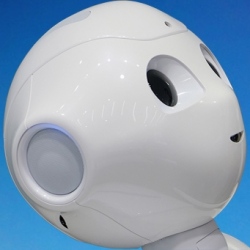
There’s a standing belief that human experts cannot be replaced by AI. Over the past few decades, smart machines and robots have taken on numerous manual jobs, and developments are showing no signs of stopping. Where does this leave the future of the work force? Surely only blue collar jobs are at risk, right?
In a new study, father-and-son Richard and Daniel Susskind, information technology researchers, sought to debunk the standing belief that some human experts, like doctors, lawyers, and accountants, cannot be replaced by robots equipped with artificial intelligence (AI). The belief is maintained by the claim that there’s just some things too tricky for robots, like subjective judgement, creativity, and empathy.
The researchers asserted, however, that AI does have a role in these positions, considering there’s already a big dependence on tech-based services. They noted that the monthly hits on Web MD network (a collection of health sites) outnumber the visits to all doctors in the US.
Trade sites even have algorithms that can settle legal disputes. eBay used their “online dispute resolution” to solve 60 million disagreements instead of lawyer consultations, a number three times the annual lawsuits filed in the US. Just this year, the AI lawyer “Ross” was employed by a firm for its bankruptcy practice. All these examples may be indicative of the shift in professional services.
The authors deem that the view that AI cannot replace human roles, because they cannot be creative or empathetic as sentient humans, is a big fallacy. According to the researchers:
“The error here is not recognizing that human professionals are already being outgunned by a combination of brute processing power, big data, and remarkable algorithms. These systems do not replicate human reasoning and thinking. When systems beat the best humans at difficult games, when they predict the likely decisions of courts more accurately than lawyers, or when the probable outcomes of epidemics can be better gauged on the strength of past medical data than on medical science, we are witnessing the work of high-performing, unthinking machines.”
It’s true that most of us would turn first to the internet to look for a diagnosis and treatment when we’re a bit ill, the doctor could come later. Could our collective bot-trusting character, coupled with ever-speeding technological advancement, lead to a future work force completely run by AI? The Susskinds believe we’re on our way.
